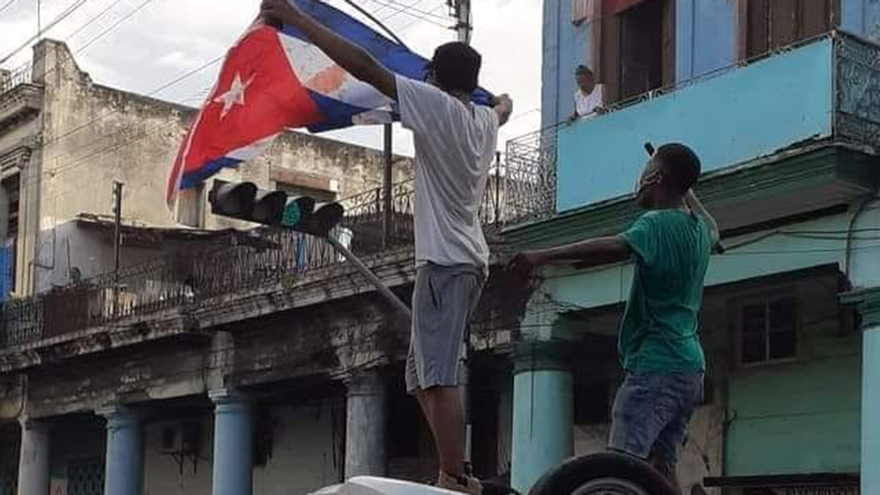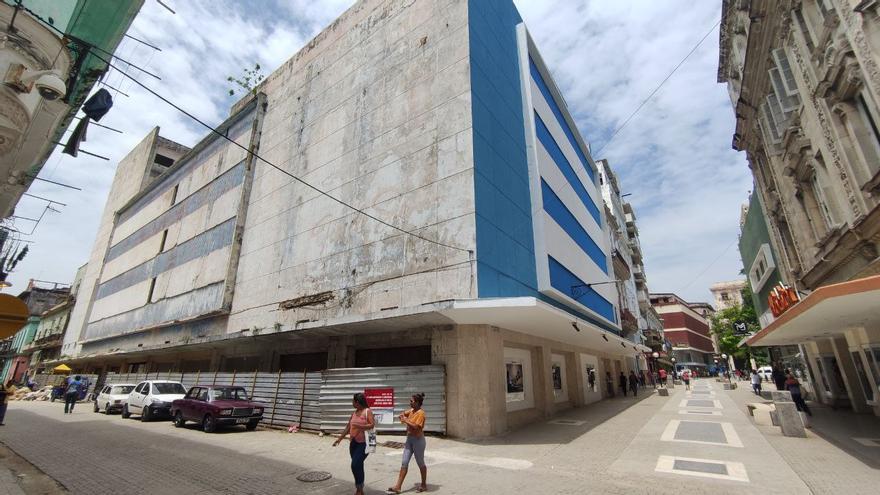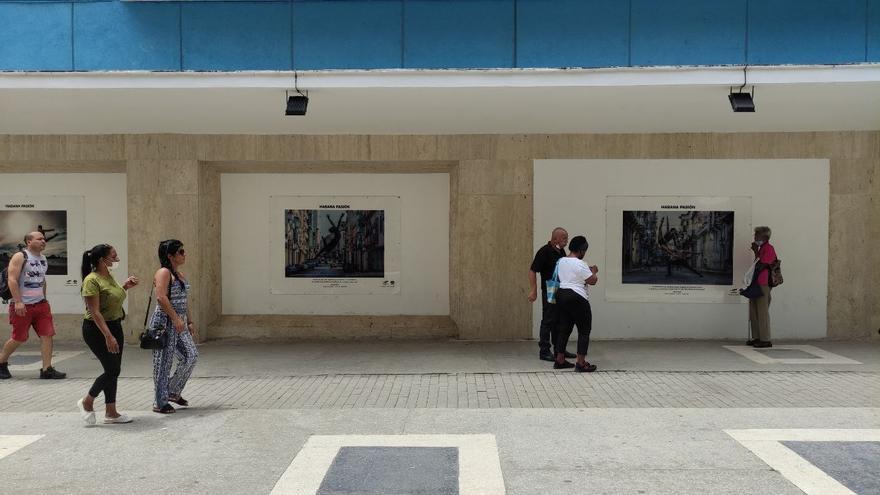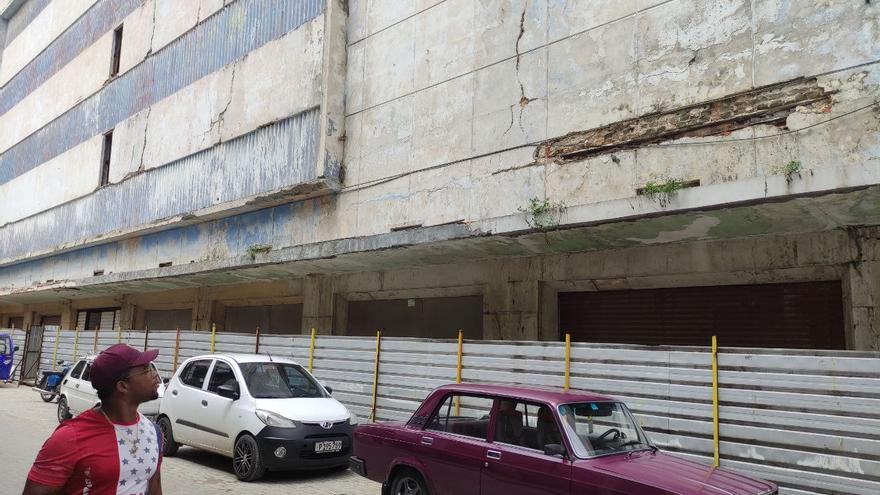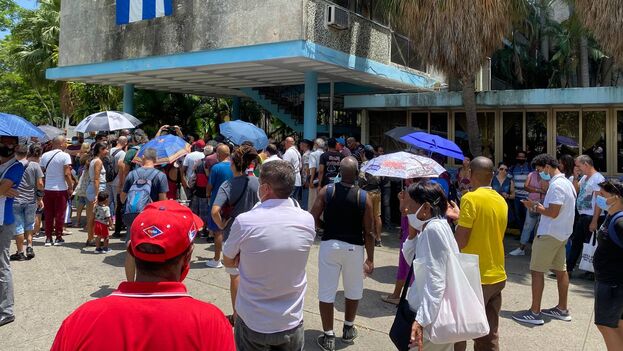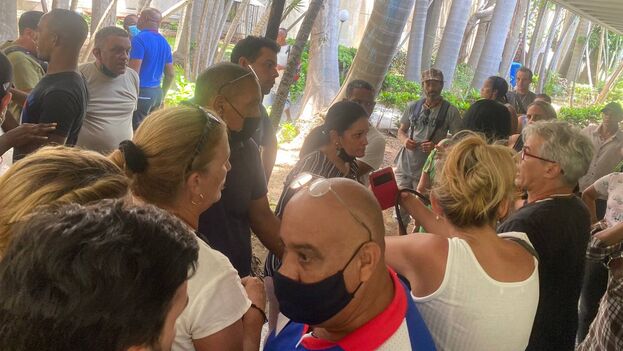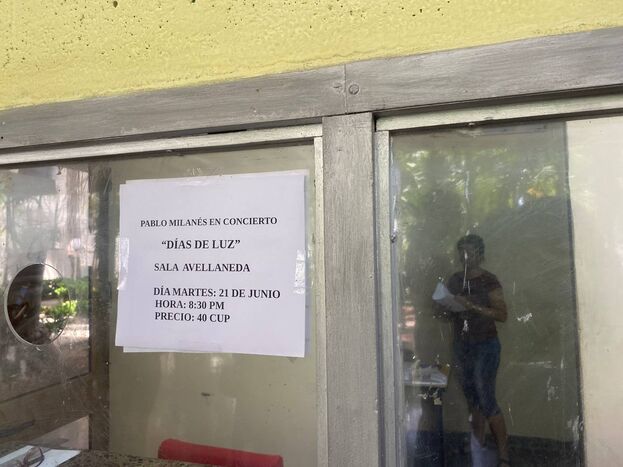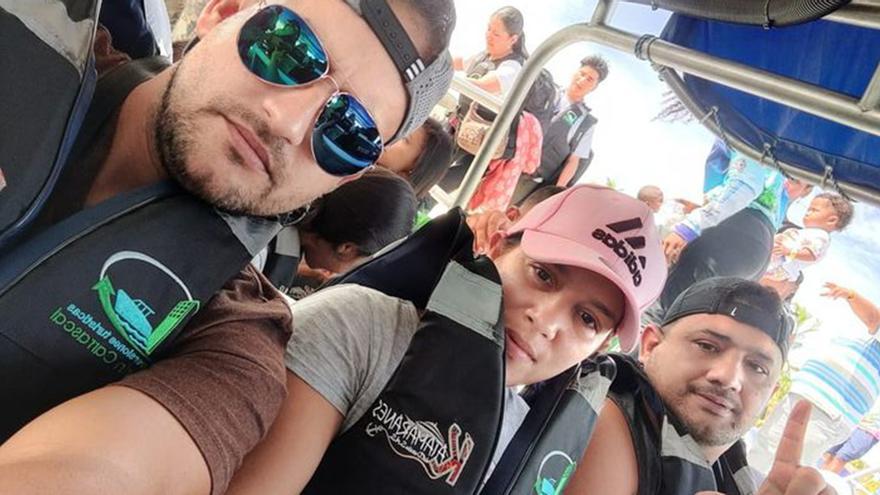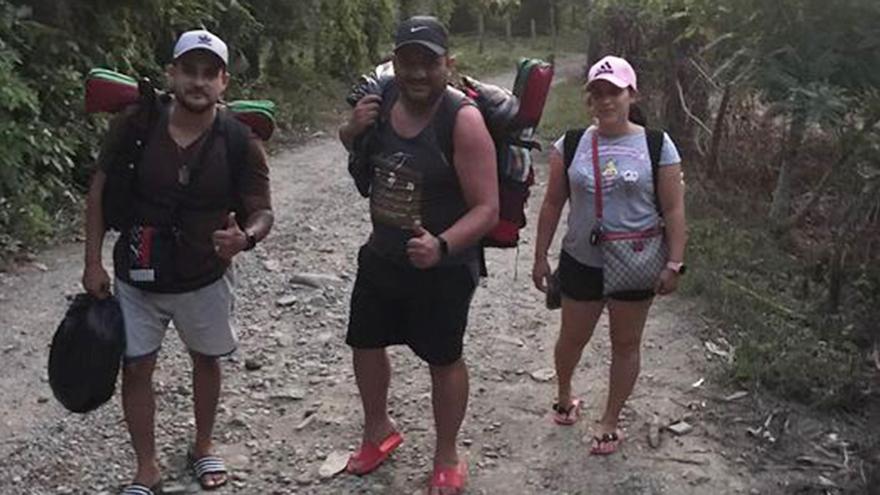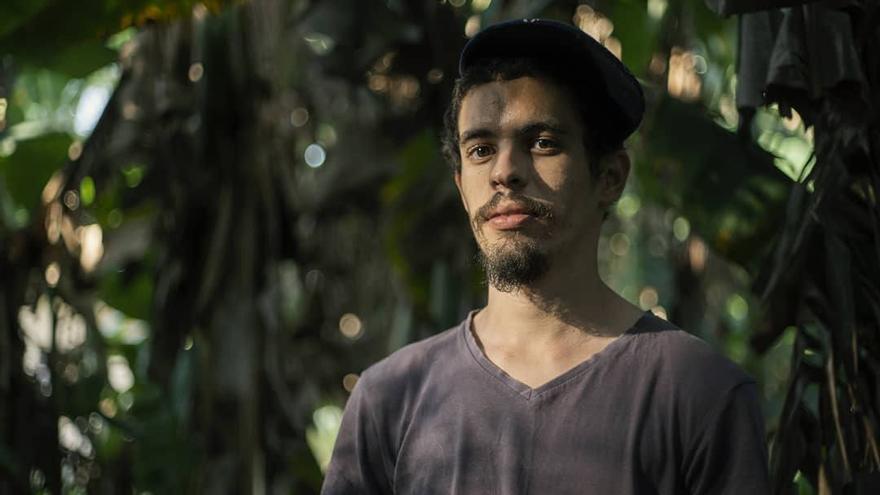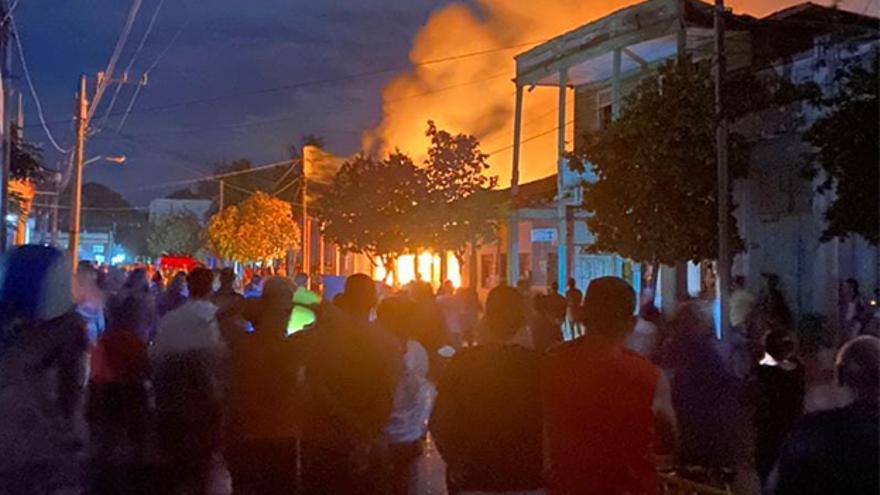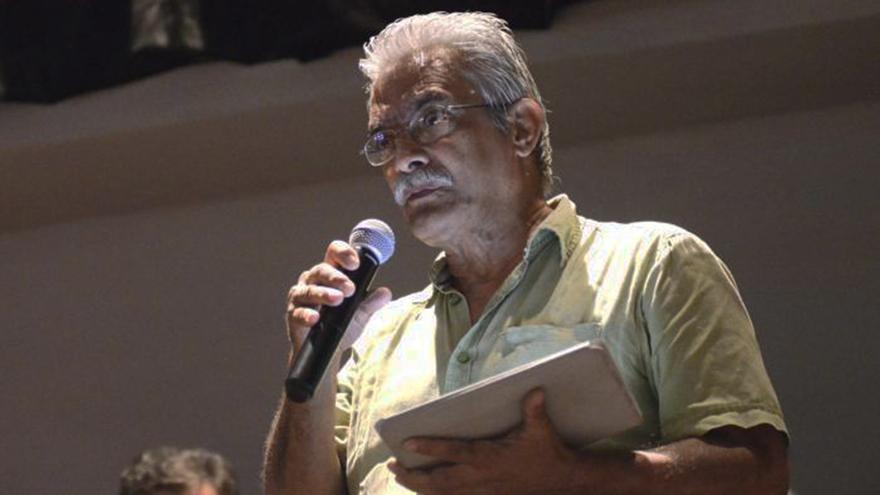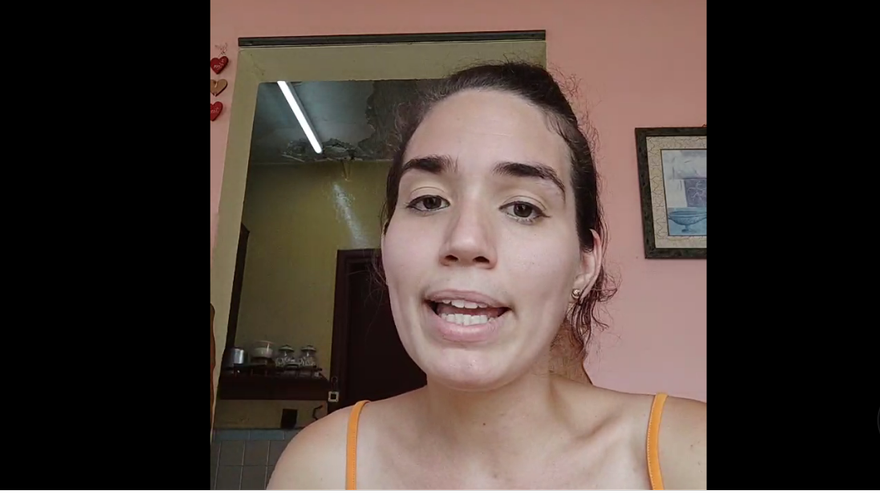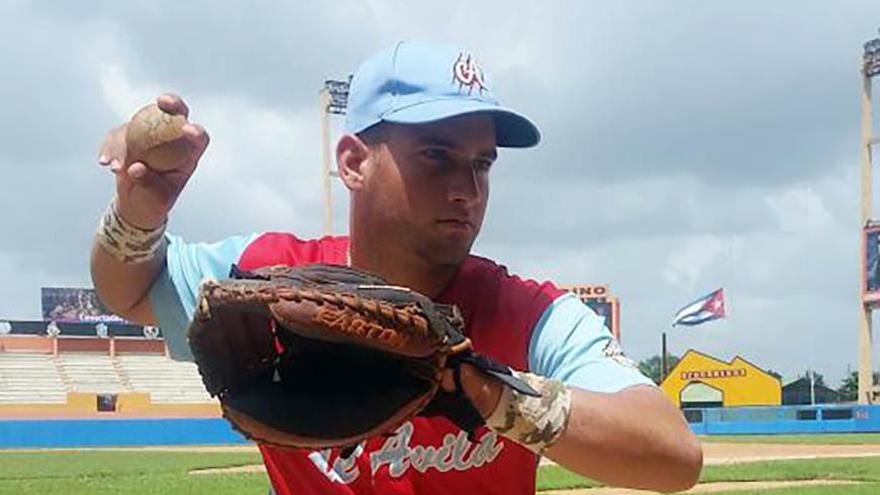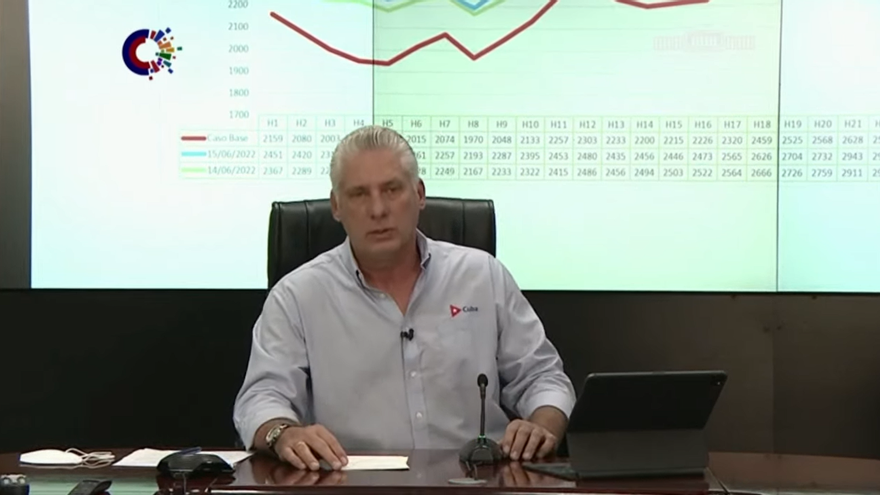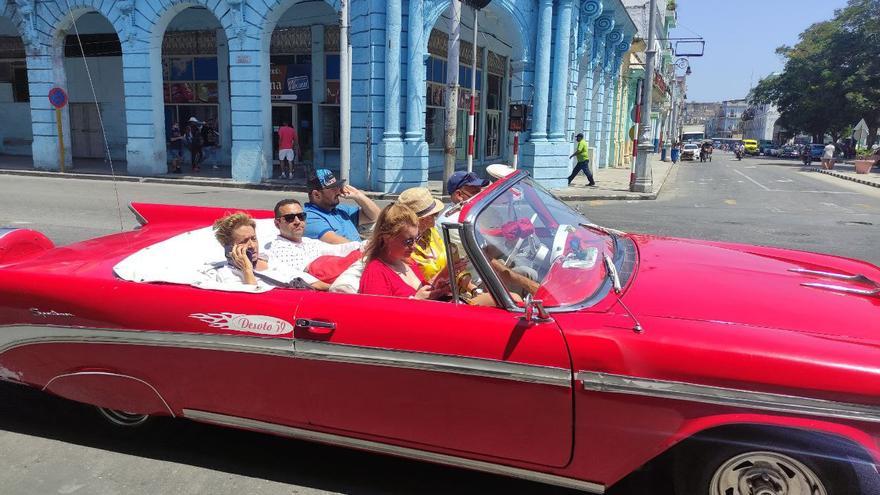
![]() 14ymedio, Havana, 20 June 2022 — As of the month of May, the Cuban government has obtained just over 261 million dollars from tourism, of the 1,159 million that it aspires to collect in this sector throughout the year, according to the triumphant estimate of disastrous data that it offered last Friday.
14ymedio, Havana, 20 June 2022 — As of the month of May, the Cuban government has obtained just over 261 million dollars from tourism, of the 1,159 million that it aspires to collect in this sector throughout the year, according to the triumphant estimate of disastrous data that it offered last Friday.
At the beginning of the year, the Ministry of Economy and Planning stated that, if the forecasts were met and 2.5 million foreign travelers arrived on the island, some 1,159 million dollars would be contributed to the Cuban economy. The figure represents about 463.60 dollars per traveler, quite far from the average declared in 2019, when spending per tourist stood at 700 dollars.
On Friday, the National Office of Statistics and Information (Onei) released the tourism data for June, with the January-May range included. This data reports that as of that date more than half a million travelers had arrived on the Island. If they had spent the average of what the Government attributes to them, not even a quarter of the foreign exchange expected by the authorities would have been collected.
Onei’s message highlighted the strong rise in tourism compared to the same period of the previous year. “564,847 international visitors have been received as of the month of May, which represents 640.3%, that is, 476,637 visitors, more than in the same period of the previous year,” but once again, the Government is cheating by reporting data that could only be spectacular compared to the dates of the pandemic, when the borders were closed. continue reading
If compared to the year 2019, the bad data is visible. In that year, the last fully normal year in terms of the movement of people, 2,286,882 people traveled to the Island as of May. The drop is 75%. As for 2018, in the same period 2,159,967 arrived, which gives a drop of 73%.
“Recent tourism data in Cuba confirms today that the route taken by the authorities marks an upward march towards recovery plans for the recreation sector,” Prensa Latina published on Friday, which, in a display of optimism, estimated the figure is “one evidence of the recovery path of this economic sector.”
The Cuban government agency did not stop there and considered that the forecasts of reaching 2.5 million foreign tourists “seems to be going at a good pace.” However, there are approximately 2 million visitors left to reach the planned goal and the margin is slim. Cuba’s high season dow not begin until October and, especially November, while the months between April and September usually have the worst data.
Last May, during the celebration of FitCuba 2022, Prime Minister Manuel Marrero admitted that the recovery of the tourism sector should be postponed for a year, which contradicted the overly optimistic comments made a few days earlier by the minister of the branch, Juan Carlos García Granda.
The data is clear: in addition to the debacle that is observed when compared with dates under the same conditions, it is clearly noticeable how Russia, one of the countries that acted as a locomotive for Cuban tourism, due to how much tourism from that country grew, is erased from the map.
The sanctions that the US and Europe imposed on Moscow after the beginning of the invasion of Ukraine, on February 23, have blocked flights to the island from Russia, which had sent 75,977 travelers between January and June 2019, before collapsing to 37,333 for the first five months of 2022. But more serious than the total is the evolution, since in January 19,434 Russians arrived in Cuba and in February 16,437. But the number for March was 807, for April 321 and for May 334, which means the virtual disappearance of the only growing tourism in recent years.
The numbers of other travelers from frequent countries are growing compared to 2021, but again, if compared to 2019, it is understood that foreign exchange will continue to be scarce. Canada, the largest source of tourists to Cuba, sent 182,733 as of the end of May, while in the same period of 2019 the number was 682,458. Spain sent 20,963, compared to 50,401 three years ago, for just a couple comparisons.
In the words of the Cuban economist based in Spain, Elías Amor: “There is no gradual recovery of tourism, and the worst thing is that the private sector that depends on this activity cannot take it anymore.”
____________
COLLABORATE WITH OUR WORK: The 14ymedio team is committed to practicing serious journalism that reflects Cuba’s reality in all its depth. Thank you for joining us on this long journey. We invite you to continue supporting us by becoming a member of 14ymedio now. Together we can continue transforming journalism in Cuba.

